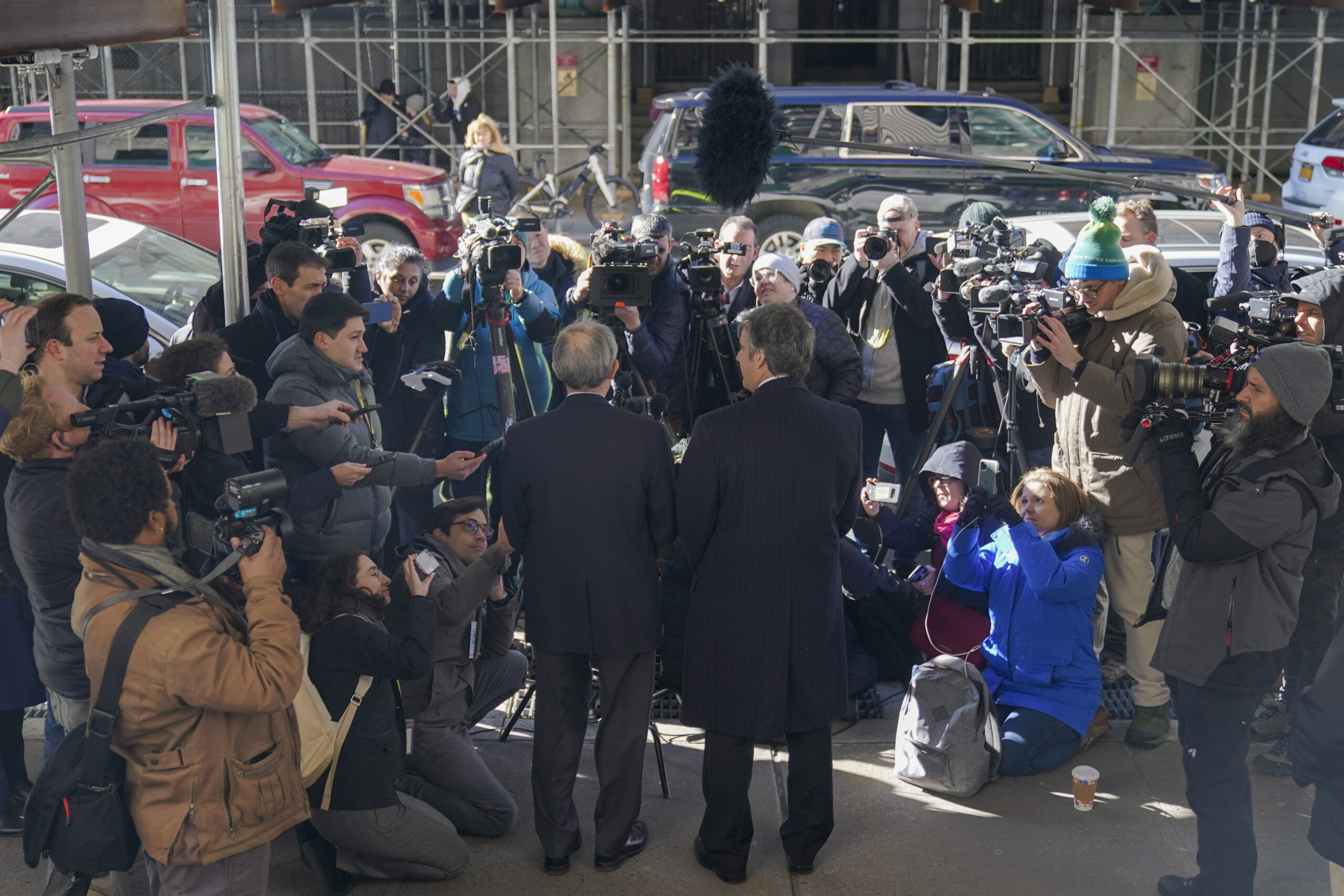Donald Trump’s potential arrest must not be framed as only, or even primarily, a political story. It’s not enough to tell our audiences Trump is the first president to be criminally charged either while in the White House or after leaving office.
The why is more important than the what.
It will be tempting, though, to frame this mostly as how it might affect Trump’s prospects during the 2024 election cycle. While that’s an important angle, given the stakes, a more important one is helping our audiences understand how we got to this unprecedented moment.
We got here because Trump is unlike any former president before him. We got here because Trump’s behavior has raised red flags on a variety of issues from the moment he came down the escalator in Trump Tower in 2015, from his family’s dubious tax records and their overseas business interests; his blackmailing attempts of the Ukrainian government that led to his first impeachment; his being captured on audio asking Georgia officials to find 11,780 votes to overturn the results of that state’s election; his role in the violent insurrection attempt that unfolded on Jan. 6, 2021, which led to a second impeachment; and his taking of classified documents and storing them at his Florida resort.
That’s why it isn’t enough to say Trump’s potential arrest is unprecedented. It’s not a result of happenstance. It’s because Trump has done unprecedented things, including potentially breaking several laws, big and small.
In the case that led us to this day, it makes little sense to compare his treatment by law enforcement to previous former presidents — because we know of no other former president who allegedly paid a porn star to cover up an extramarital affair he believed could have derailed his run for the presidency.
Our audiences deserve to know this: Did the Manhattan district attorney’s office follow well-established ethical procedures before levying these charges? Do the charges seem reasonable based on what’s publicly known? Would someone not named Trump in similar circumstances allegedly committing similar acts have been pursued by the prosecutor in Manhattan and criminally charged? Would someone not named Trump have been charged long ago?
What’s more, Trump’s potential arrest provides an opportunity to further explain the complexity — and unfairness — of the criminal justice system. Why is it, as noted civil rights attorney Bryan Stevenson has surmised, that our system is likely to treat you better if you are rich and guilty than poor and innocent?
The Justice Department has long declared that a sitting U.S. president shouldn’t be charged criminally, and even after he has left office, there is enormous pressure to not charge him no matter what he does. Why?
And what effect has that had on presidents’ behavior? Does it make them more reckless knowing spending time behind bars is essentially not a possibility no matter what they do? How has that affected their decisions to launch unprovoked wars, like the one the Bush administration launched 20 years ago this month or the “no-fly zone plus” the Obama administration used in Libya?
Why are the powerful, who’ve been afforded an enormous number of privileges, protected from prosecution more than the poor and vulnerable? Is it because politics have made it nearly impossible to hold the most powerful among us to account except in rare circumstances? That’s likely why Trump broadcast his possible arrest days in advance, calling on his supporters to protest. Potent charges of political hypocrisy and political witch hunts have been used by Trump as a sword and shield. Media personalities have helped him do it.
Take what former Obama administration official and current CNN senior political commentator David Axelrod said in a now-deleted tweet while responding to reports that Trump might be arrested: “Of all the offenses for which Trump is under investigation, the Stormy Daniels hush money is probably the least meaningful. If he's going to be indicted in any of these probes, this [is] the one he probably would want first to try and color all of them as politically-motivated.”
That framing essentially asserts that prosecutors would be unwise, or maybe wrong, to bring criminal charges in this case because it might look political and can be used to politically taint all other cases against Trump. I personally think the voting case in Georgia is a bigger test of the health of our democracy. That doesn’t mean prosecutors in New York should wait or refuse to pursue charges, despite the evidence they’ve gathered, because some of us prefer a different case make it to court first.
If prosecutors refuse to prosecute Trump because they will be accused of political bias — despite the evidence they’ve collected — that would amount to a political pass for Trump, and reinforce the idea that some powerful men actually are above the law. Journalists must avoid falling into the rhetorical trap Axelrod did.
There will be enormous pressure to give in, though. But we mustn’t.
Discussing the political ramifications can’t be avoided, of course, especially with numerous Republicans, including former Vice President Mike Pence, preemptively proclaiming any charges brought are politically motivated. And it’s clear that for Trump’s large base of support, any charges will be seen primarily through a political lens. We have to grapple with that reality given that such perceptions will help shape the 2024 Republican primaries and maybe even help determine the outcome.
But our journalism must be sophisticated enough to be able to handle that complexity while asking questions we should of any prosecution: Are the charges warranted? Has the accused received special or unfair treatment? How does this illustrate broader realities in our criminal justice system?
We just came off an election cycle in which the Republicans, with the aid of the media, created a narrative that crime was on a precipitous rise, and many Democrats felt obligated to either go along or not push back. In the lead-up to the midterms, Republicans consistently pushed the idea that those who break the law must be held to account more consistently, frequently and harshly, or it could embolden other would-be-criminals. President Joe Biden and several Democrats backed a Republican proposal to block criminal justice reform law in Washington, D.C., for similar reasons.
In each case, mainstream media — straight news and opinion — agreed with them or framed articles and columns as though it was just common sense. Why is it suddenly hard to apply the same logic in Trump's case? Is it that former presidents are in effect above the law because law enforcement and powerful media figures have treated them too much like kings for far too long?



